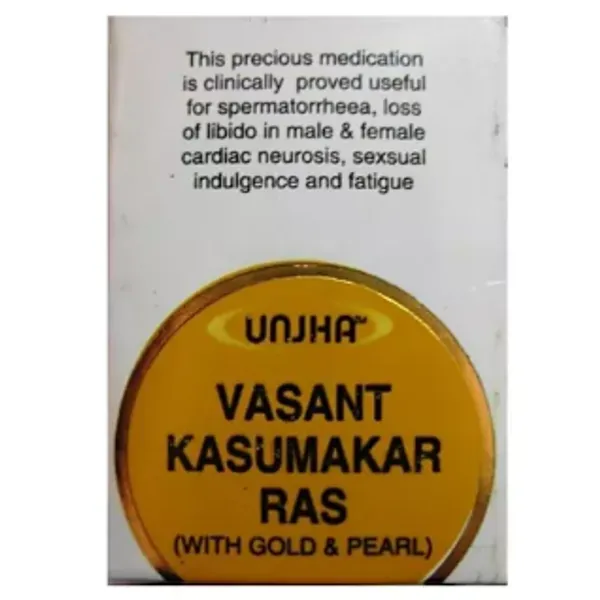Alsi oil, also known as flaxseed oil, is gaining popularity as a healthful addition to a balanced diet. Extracted from the dried, ripened seeds of the flax plant, this oil is celebrated for its rich nutritional profile, including a high content of omega-3 fatty acids. This guide delves into the numerous benefits of incorporating alsi oil into your daily routine, explores its uses in cooking and baking, and discusses the importance of choosing sustainably sourced products for optimal health and environmental benefits.
Key Takeaways
- Alsi oil is a nutritional powerhouse with a high omega-3 content, beneficial for heart health and reducing inflammation.
- It can be used as a healthy substitute in baking and enhances flavors when added to salads and dips.
- Regular consumption of alsi oil may aid in weight management and improve overall cardiovascular health.
- Storage and safety considerations are crucial to maintain the oil’s quality and to avoid potential adverse effects.
- Choosing high-quality, sustainably produced alsi oil supports not only personal health but also environmental sustainability.
Understanding Alsi Oil: A Nutritional Powerhouse
What is Alsi Oil?
Alsi oil, also known as flaxseed oil, is derived from the seeds of the flax plant. This oil is known for its rich nutritional content and has been used both as a food and a medicine for thousands of years. Alsi oil is particularly valued for its high levels of omega-3 fatty acids, which are essential for maintaining good health.
- Omega-3 fatty acids such as alpha-linolenic acid (ALA)
- Oleic acid
- Palmitic acid
Alsi oil is a versatile ingredient that can be used in a variety of dietary applications, from salad dressings to supplement capsules. Its health benefits are attributed to its unique composition of fatty acids and nutrients.
Nutritional Profile of Alsi Oil
Alsi oil, derived from flaxseeds, is celebrated for its rich concentration of omega-3 fatty acids, particularly alpha-linolenic acid (ALA). This essential fatty acid is known for its role in maintaining heart health and supporting normal cholesterol levels. The presence of ALA makes alsi oil a valuable addition to a heart-healthy diet.
In addition to omega-3s, alsi oil contains a variety of other nutrients that contribute to its status as a nutritional powerhouse. These include lignans, which have antioxidant properties, and a good balance of polyunsaturated and monounsaturated fats. Vitamins and minerals such as vitamin E, B vitamins, magnesium, and potassium are also present in notable amounts.
Alsi oil’s nutrient composition supports not only cardiovascular health but also aids in inflammation control and weight management.
Here is a brief overview of the nutritional content per tablespoon of alsi oil:
| Nutrient | Amount |
|---|---|
| Calories | 120 kcal |
| Total Fat | 14 g |
| Omega-3 Fatty Acids | 7.7 g |
| Vitamin E | 0.2 mg |
| Magnesium | 0 mg |
It’s important to note that while alsi oil is nutrient-dense, it should be consumed in moderation as part of a balanced diet.
Comparing Alsi Oil to Other Edible Oils
When it comes to edible oils, each has its unique nutritional profile and culinary uses. Alsi oil, extracted from flaxseeds, stands out for its high content of alpha-linolenic acid (ALA), a type of omega-3 fatty acid. This is in contrast to oils like olive oil, which are higher in monounsaturated fats, or sunflower oil, which has more omega-6 fatty acids.
Alsi oil is particularly noted for its favorable omega-3 to omega-6 ratio, which is important for maintaining a balanced diet. Here’s a quick comparison of alsi oil with other popular edible oils:
| Oil Type | Omega-3 Content | Omega-6 Content | Monounsaturated Fats |
|---|---|---|---|
| Alsi Oil | High | Low | Moderate |
| Olive Oil | Low | Moderate | High |
| Sunflower Oil | Very Low | High | Low |
While all edible oils provide essential fats, the type and ratio of these fats can significantly impact your health.
Choosing the right oil can depend on the specific health benefits you’re seeking. For instance, if you’re looking to enhance your intake of omega-3s, alsi oil would be a superior choice. However, for high-heat cooking, oils with higher smoke points like sunflower oil may be more appropriate.
Incorporating Alsi Oil into Your Diet
Simple Ways to Use Alsi Oil in Cooking
Alsi oil, also known as flaxseed oil, is a versatile ingredient that can easily be incorporated into your daily cooking routine. One of the simplest ways to use alsi oil is by adding it to salads as a dressing. Its nutty flavor complements a variety of greens and vegetables, enhancing the taste of your salads while boosting their nutritional value.
Another great way to include alsi oil in your diet is by using it as a finishing oil. Drizzle it over cooked vegetables, pasta dishes, or soups just before serving to add a layer of flavor and nutrients. Remember, alsi oil is not suitable for high-heat cooking due to its low smoke point, so it’s best used at the end of the cooking process or in cold dishes.
When it comes to raw consumption, alsi oil can be taken by the spoonful to maximize nutrient intake. However, if the taste is too strong on its own, try mixing it into smoothies or yogurt for an easier palate experience.
Here’s a quick list of ideas to get you started:
- Mix into salad dressings
- Drizzle over cooked dishes as a finishing oil
- Blend into smoothies or yogurt
- Use as a dip for bread
By incorporating alsi oil into your diet, you’re not only adding a burst of flavor but also taking advantage of its health benefits.
Alsi Oil in Baking: A Healthy Substitute
Replacing traditional fats like butter or vegetable oils with Alsi oil can be a game-changer for those looking to enhance the nutritional value of their baked goods. Alsi oil is rich in polyunsaturated fats, which are essential for maintaining good health, and it can contribute to a more heart-friendly recipe.
When using Alsi oil in baking, consider the following tips:
- Start by substituting half the amount of fat required with Alsi oil to adjust to the taste and texture.
- For recipes that demand a solid fat, mix Alsi oil with a small amount of butter or margarine to achieve the desired consistency.
- Keep in mind that Alsi oil has a distinct, nutty flavor that can complement many baked items, from bread to cookies.
Alsi oil’s high concentration of omega-3 fatty acids makes it a superior choice for a health-conscious diet, especially when incorporated into daily meals through baking.
Remember, while Alsi oil offers numerous health benefits, it’s important to store it properly to prevent it from going rancid. As a delicate oil, it should be kept in a cool, dark place, or even in the freezer for extended shelf life.
Raw Consumption: Maximizing Nutrient Intake
Consuming Alsi oil in its raw form is one of the most effective ways to ensure you’re getting the full spectrum of its nutritional benefits. When Alsi oil is unheated, it retains its high levels of omega-3 fatty acids, which are essential for maintaining heart health and cognitive function.
Alsi oil can be easily integrated into your diet by adding it to salads, smoothies, or drizzling over dips. Here’s a simple list to get started:
- Drizzle over a bowl of mixed greens
- Blend into your morning smoothie
- Stir into oatmeal or yogurt
- Use as a base for homemade salad dressings
Remember, the key to maximizing nutrient intake is to use Alsi oil in its most natural state, avoiding high heat and prolonged exposure to light.
While Alsi oil is a powerhouse of nutrients, it’s important to balance its consumption with other fats to maintain a well-rounded diet. Nutricharge Veg Omega is another option for those looking to supplement their intake of omega-3s, offering similar health benefits for the brain, heart, and joints.
Health Benefits of Alsi Oil
Cardiovascular Health and Alsi Oil
Alsi oil, derived from flax seeds, is celebrated for its high omega-3 fatty acid content, which is instrumental in promoting heart health. Regular consumption of Alsi oil may reduce the risk of cardiovascular diseases, a benefit attributed to its ability to improve blood lipid profiles.
Omega-3 fatty acids are known to lower triglyceride levels and may also reduce blood pressure, both of which are crucial for maintaining a healthy heart. Additionally, these fatty acids can help to prevent the hardening of arteries, thereby reducing the likelihood of heart attacks and strokes.
By incorporating Alsi oil into your diet, you’re not just adding a flavorful ingredient; you’re also taking a proactive step towards protecting your heart.
The following list outlines the cardiovascular benefits of Alsi oil:
- Reduction in the risk of heart diseases
- Lowering of triglyceride levels
- Potential to decrease blood pressure
- Prevention of arterial hardening
Alsi Oil’s Role in Weight Management
Integrating Alsi oil into your diet can be a strategic move for weight management. Its high content of omega-3 fatty acids is known to help reduce inflammation, which is often associated with obesity and metabolic syndrome. Including Alsi oil in your meals may contribute to a feeling of fullness, aiding in appetite control and potentially leading to reduced calorie intake.
- Alsi oil is rich in dietary fiber, which promotes digestive health and helps maintain satiety.
- The oil’s protein content supports muscle maintenance, important for a healthy metabolism.
Alsi oil’s nutrient composition makes it a valuable addition to a weight-conscious diet. By substituting unhealthy fats with Alsi oil, you can enhance the nutritional quality of your meals without compromising on taste.
Remember, while Alsi oil offers numerous benefits for weight management, it should be consumed in moderation as part of a balanced diet.
Anti-inflammatory Effects of Alsi Oil
The anti-inflammatory properties of Alsi oil are remarkable, making it a valuable addition to a diet aimed at reducing inflammation. Omega-3 fatty acids, which are abundant in Alsi oil, play a crucial role in managing inflammation in the body. These essential fats are known to help reduce the production of substances linked to inflammation, such as eicosanoids and cytokines.
Flaxseed oil, another name for Alsi oil, has been studied for its potential to alleviate symptoms of inflammatory conditions. For instance, individuals suffering from arthritis may find relief by incorporating Alsi oil into their diet.
Regular consumption of Alsi oil may contribute to a reduction in inflammation markers in the body, which is beneficial for overall health.
While Alsi oil offers these anti-inflammatory benefits, it’s important to use it as part of a balanced diet. Consulting a healthcare professional is advisable, especially for those with specific health conditions or those taking other supplements or medications.
Safety and Considerations
Proper Storage of Alsi Oil
To maintain the quality and nutritional integrity of Alsi oil, proper storage is essential. Keep Alsi oil in a cool, dark place to prevent it from going rancid. Exposure to heat, light, and air can degrade the oil’s beneficial properties.
- Store Alsi oil in an airtight container to minimize oxidation.
- Place the container in a cupboard away from the stove or other heat sources.
- If you’ve purchased Alsi oil in bulk, consider transferring a small amount to a separate container for daily use, keeping the rest sealed.
Refrigeration can extend the shelf life of Alsi oil, especially after opening. However, it may cause the oil to become cloudy due to the cold temperature. This does not affect the oil’s quality, and it will return to its normal clarity at room temperature.
Potential Side Effects and Interactions
While Alsi oil, derived from flaxseeds, is generally safe for consumption, it is important to be aware of potential side effects and interactions with medications. Individuals on blood-thinning medications should exercise caution, as Alsi oil can potentially increase bleeding risk due to its high omega-3 content.
Alsi oil acts as a natural laxative and may affect blood sugar and blood pressure levels. It is advisable to consult with a healthcare provider before incorporating it into your diet if you have underlying health conditions or are on medication.
Some people may experience mild digestive issues when consuming Alsi oil, especially when taken in large quantities. To minimize side effects, start with small doses and gradually increase your intake. Below is a list of potential side effects to be mindful of:
- Increased bleeding tendency
- Lowered blood pressure
- Changes in blood sugar levels
- Gastrointestinal discomfort
If you experience any adverse reactions, discontinue use and seek medical advice.
Understanding the Smoke Point of Alsi Oil
The smoke point of an oil is the temperature at which it begins to smoke and break down, potentially forming harmful compounds. Alsi oil has a relatively low smoke point compared to other oils, making it less suitable for certain cooking methods. It’s important to use alsi oil in ways that preserve its nutritional integrity and avoid exposure to high temperatures.
Alsi oil should not be used for high-heat cooking methods such as frying. Instead, it can be drizzled over finished dishes or used in salad dressings where its flavor and nutrients can be enjoyed without the risk of overheating.
When incorporating alsi oil into your diet, consider its smoke point to maintain the oil’s health benefits and flavor profile.
Here’s a quick reference for the smoke points of various edible oils:
| Oil Type | Smoke Point |
|---|---|
| Alsi Oil | Low |
| Olive Oil | Medium |
| Canola Oil | Medium-High |
| Avocado Oil | High |
Remember, choosing the right oil for your cooking method is crucial for both health and taste.
Sourcing and Sustainability
Choosing High-Quality Alsi Oil
When selecting Alsi oil, it’s crucial to look for signs of quality to ensure you’re getting the most benefits. Opt for cold-pressed oils, as this method preserves the nutrients without using heat or chemicals. Check the labeling for certifications that guarantee organic and non-GMO ingredients, which reflect a purer product.
- Look for a clear, golden color, which indicates minimal processing.
- A mild, nutty flavor suggests the oil is fresh and of high quality.
- Packaging should be opaque to protect the oil from light, which can degrade its quality.
Remember, the best Alsi oil is one that has been minimally processed and is free from additives and preservatives.
Always verify the source of the oil. A reputable brand will often provide transparency about their sourcing and production practices. This can include information on their website about the origin of the seeds and the methods used for oil extraction.
The Environmental Impact of Alsi Oil Production
The production of Alsi oil, like any agricultural process, has an environmental footprint that warrants consideration. Sustainable farming practices are crucial in minimizing the ecological impact and ensuring the longevity of the resources used in Alsi oil production.
Flaxseed, the source of Alsi oil, is generally considered a robust crop that requires fewer pesticides and fertilizers compared to other oilseed crops. This characteristic can lead to a lower environmental burden. However, the processing and transportation of Alsi oil contribute to its carbon footprint.
- Responsible sourcing of flaxseed
- Minimizing processing waste
- Reducing energy consumption during extraction
- Implementing eco-friendly packaging solutions
The balance between the nutritional benefits and the environmental costs is a key factor in the sustainable consumption of Alsi oil.
It is important for consumers to be aware of the environmental impact and to support brands that prioritize sustainability in their production methods. By choosing high-quality Alsi oil from responsible producers, individuals can enjoy the health benefits while contributing to a healthier planet.
Supporting Sustainable Alsi Oil Brands
Choosing to support sustainable Alsi oil brands is not only beneficial for your health but also for the planet. Sustainable brands often prioritize environmentally friendly practices and ethical sourcing, ensuring that the production of Alsi oil does not harm ecosystems or exploit workers.
When selecting a brand, look for those that transparently share their sustainability efforts and certifications. Transparency is key in understanding the impact of your purchase. Here are some factors to consider:
- The use of organic farming methods
- Commitment to non-GMO seeds
- Fair trade practices
- Carbon footprint reduction initiatives
By opting for brands that align with these values, consumers can contribute to a more sustainable and responsible food system.
Remember, every purchase is a vote for the type of world you want to live in. Supporting brands like WOODFRESS, which prides itself on being a niche cold pressed oil brand, can make a significant difference. Their commitment to quality and trust is evident in their customer satisfaction.
At the heart of our commitment to health and well-being is our dedication to sourcing and sustainability. We believe in the power of natural remedies and are proud to offer a diverse range of Ayurvedic medicines, personal care products, and nutritional supplements that are 100% authentic and crafted from the finest herbs. Embrace a holistic approach to health with our carefully curated selection. Visit our website to explore our products and take the first step towards a balanced and healthy lifestyle.
Embracing Alsi Oil for a Healthier Tomorrow
Incorporating alsi oil into your diet can be a simple yet powerful step towards a healthier lifestyle. Packed with essential fatty acids, antioxidants, and nutrients, this versatile oil has the potential to support heart health, reduce inflammation, and enhance overall well-being. As we’ve explored the myriad of benefits and uses of alsi oil, it’s clear that this natural ingredient is more than just a culinary asset—it’s a wellness ally. Whether you’re drizzling it over salads, blending it into smoothies, or using it as a base for your cooking, alsi oil is an excellent addition to a nutrient-rich diet. Remember to consult with a healthcare professional before making significant changes to your diet, especially if you have underlying health conditions. Embrace the power of alsi oil and let it pave the way to a more vibrant and healthful you.
Frequently Asked Questions
What exactly is Alsi Oil and where does it come from?
Alsi Oil, also known as flaxseed oil, is derived from the seeds of the flax plant. It’s known for its high omega-3 fatty acid content and is used both as a nutritional supplement and a culinary oil.
Can you provide a brief overview of Alsi Oil’s nutritional content?
Alsi Oil is rich in alpha-linolenic acid (ALA), a type of omega-3 fatty acid. It also contains lignans, which have antioxidant properties, and is a source of vitamin E and other healthy fats.
How does Alsi Oil compare to other common edible oils in terms of health benefits?
Alsi Oil has a higher content of omega-3 fatty acids compared to many other oils, which is beneficial for heart health. Unlike oils high in saturated fats, Alsi Oil has heart-healthy polyunsaturated fats.
What are some simple ways to include Alsi Oil in my cooking?
Alsi Oil can be used in salad dressings, dips, and to finish dishes. However, it’s not suitable for high-heat cooking due to its low smoke point.
Can Alsi Oil be used in baking, and if so, how?
Yes, Alsi Oil can be used as a healthy substitute for other fats in baking. It can replace oils or butter in recipes, but you may need to adjust quantities for the best texture.
Are there any specific health benefits associated with consuming Alsi Oil?
Alsi Oil is known for promoting cardiovascular health, aiding in weight management, and having anti-inflammatory effects. Its omega-3 content is particularly beneficial for heart health and reducing inflammation.











